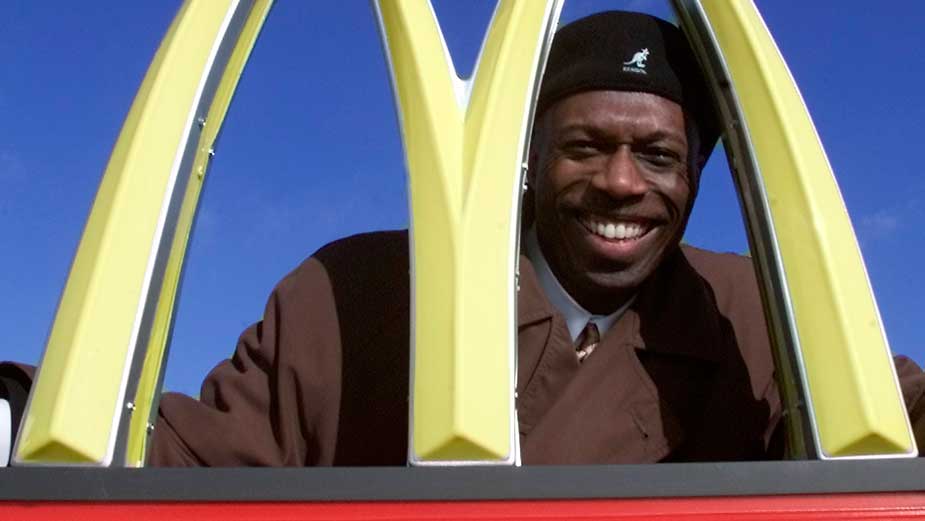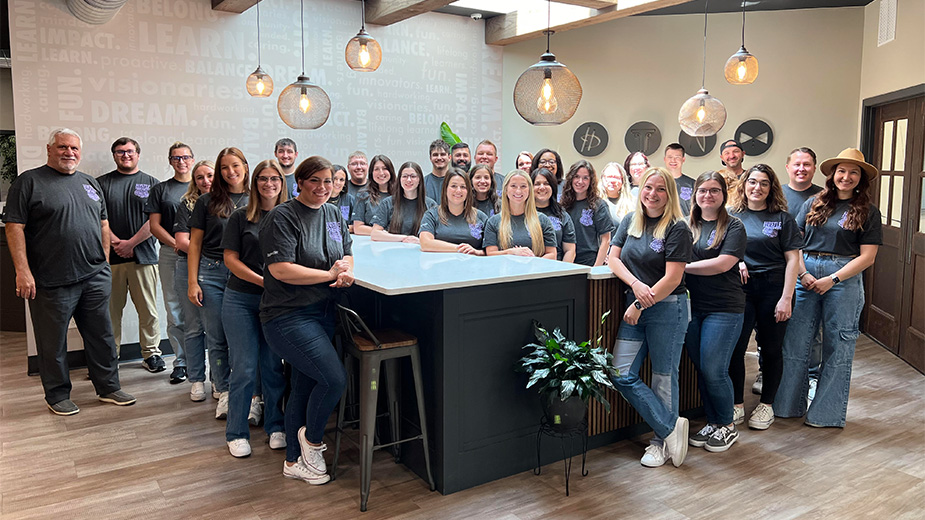Washington Claims McDonald’s Sets Up Black Owners to Fail
YOUNGSTOWN – Claiming the McDonald’s Corp. and its franchising arm has a history of discrimination and retaliation against him and other Black franchisees, Herb Washington has filed a lawsuit seeking an unspecified amount of economic damages for financial and mental suffering, along with other remedies for relief.
In a civil claim filed Tuesday in U.S. District Court, Northern Division, Washington charges that McDonald’s USA LLC is trying to eliminate Black franchisees from its system. Washington, who is represented by the law firm of Peiffer Wolf Carr Kane & Conway, is seeking a jury trial.
In a virtual press conference Tuesday that was filled with charges of racial discrimination, Washington and his attorneys said they want to end decades of systemic racism practiced by the fast food giant and to speak up for other Black franchisees who fear retribution.
To illustrate the consequence of what he claims is the corporation’s systematic racism, Washington points out that there were 377 Black franchisees in 1998, but only 186 today.
Washington was once the largest Black franchisee in the McDonald’s system, with 27 stores. He currently owns 14, all in northeastern Ohio and western Pennsylvania. He claims he was forced by McDonald’s to sell seven franchises in the past three years and lost the others over the years through closures or other means.
“You don’t stay in this business, or any business, for 40 years by being [a bad businessman],” Washington said.
In his suit, Washington cites actions by Sam Covelli, who owned 50 McDonald’s restaurants in the late 1990s. Covelli had gotten into Panera franchising at that time, which the suit claims was a violation of McDonald’s noncompete clause.
“Rather than sue Covelli … McDonald’s helped him secure top dollar for his McDonald’s stores in [a sale to] Washington,” the suit reads.
Washington sold his upstate New York stores and purchased 25 Youngstown-area stores from Covelli in 1998 and 1999, making him the largest Black franchise owner in the nation at the time.
Washington’s suit claims that the Covelli organization began “pirating” his best employees from Washington, in violation of the purchase agreement.
“I became the No. 1 Black owner in the face of relentless racism,” Washington said. “It took every ounce of me to succeed. Because of my upbringing in Flint, Mich., I knew I’d have to fight for everything.”
The company “may look like a multicultural Mecca from the outside but their playbook includes redlining [against potential franchisees],” Washington said. “When I stood up to them, they began dismantling my life’s work.”
Attorney Kevin P. Conway, who represents Washington, said “institutional racism is woven into McDonald’s culture. … Blacks must work harder to make less money.”
In response to the suit, McDonald’s USA claimed the situation is the result of “years of mismanagement by Washington.” The chain said Washington’s organization “has failed to meet many of our standards on people, operations, guest satisfaction and reinvestment. His restaurants have a public record of these issues, including past health and sanitation concerns and some of the highest volumes of customer complaints in the country.”
In turn, Washington responded that he was prevented from obtaining franchises in more affluent areas, where revenues are considerably higher and operating costs are lower, and was instead steered to inner-city locations.
“Franchisees need a mix of stores [in affluent and poorer locations] to be profitable,” Washington said.
In an effort to create the illusion of revenue parity between its Black and White franchisees, the suit claims, McDonald’s denies lease extensions for poor-performing locations or otherwise coerces the owner into selling them.
In every case, Washington claims, his franchises were eventually sold to White owners – lowering the average revenue for White franchisees while increasing that of Black franchisees. It’s a solution that creates parity on paper, but doesn’t address the fact that Black franchisees are not given the same opportunities as White franchisees, Washington claims. On average, the filing claims, Black-owned McDonald’s franchises earn $700,000 less per year than White-owned ones.
Under the McDonald’s business model, the corporation owns the real estate and leases the right to operate a store to a franchisee, usually for a 20-year period. The franchisee is largely responsible for rent, reinvestment and improvement in the building, as well as operating expenses.
According to the response from McDonald’s, Washington owns multiple restaurants “positioned to deliver growth” but his mismanagement puts them at risk.
Washington has “failed to meet our standards in the past … [including] a rodent infestation” at a Cleveland store, the company stated. McDonald’s also claimed it has provided “significant” financial support, although Washington dismissed that claim.
The corporation also said that it does not place franchisees into specific locations; most such sales transactions are between the franchisees. Washington also dismissed this claim, stating that buyers are lined up by the company.
McDonald’s pointed out that 30% of its franchisees are “ethnically diverse.”
Washington, 69, was born in Mississippi. He was a four-time track All-American for Michigan State University and played for the Oakland Athletics in 1974 and 1975.
He bought his first McDonald’s franchise in 1980 in Rochester, N.Y. The locations of Washington’s franchises are:
- 5626 Mahoning Ave., Austintown.
- 1709 S. Raccoon Road, Austintown.
- 609 E. Midlothian Blvd., Youngstown.
- 150 N. Canfield-Niles Road, Mineral Ridge.
- 22 Boardman-Poland Road, Poland.
- 1180 Boardman-Poland Road, Poland.
- 20 N. Canal St., Newton Falls.
- 67 W. State St., Sharon, Pa.
- 2066 E. State St., Hermitage, Pa.
- 145 N. Hermitage Road, Hermitage, Pa.
- 63 Hadley Road, Greenville, Pa.
- 22291 Euclid Ave., Euclid.
- 3050 Carnegie Ave., Cleveland.
- 15110 St. Clair Ave., Cleveland.
Pictured: Herb Washington poses for a portrait in January 2002 outside his McDonald’s restaraunt in Niles. (AP Photo/Ron Schwane)
Copyright 2024 The Business Journal, Youngstown, Ohio.


